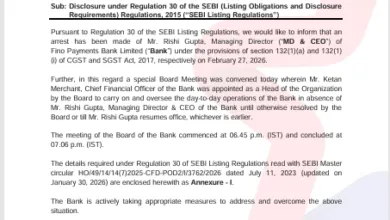PNB announced to deduct Tax on Interest Free Loans to Employees

The Banking sector is going through a lot of ups and downs. The government is planning to reform the entire banking industry but is overlooking the welfare of bank employees. PSU Banks have started deducting Tax on Interest Free Loans or Loans at concessional interest offered to its Employees.
Punjab National Bank (PNB) has implemented a perquisite tax on interest-free and concessional loans provided to its employees, in accordance with a recent court order. The decision follows Section 17(2) of the Income Tax Act, 1961, which classifies benefits such as free or concessional loans as taxable “perquisites.”
Now Bank Employees will have to pay tax on interest free loans or loans taken at concessional rate of interest. The amount that Bank Employees save due to low rate of interest in loans will be subjected to Tax. This will be a huge loss for PSU Bank Employees who are already deprived of various job benefits such as 5 day work week and also receive low salary as compared to private bank employees.
Current Loan Benefits for Employees
Public Sector Banks (PSBs) in India, including PNB, have traditionally offered interest-free or concessional loans to their employees. Let’s understand this with the help of an example.
For example:
- The general public pays a compound interest rate of approximately 9% on car loans, while bank employees benefit from a lower simple interest rate of around 5%.
- Similarly, organizations like LIC extend concessional loan benefits to their employees.
These concessions have been a critical incentive for employee retention in PSBs, as they lack other perks commonly offered by private companies, such as bonuses, shares, or festive benefits. For instance, companies like Flipkart recently issued shares to employees, resulting in significant profits for them. In contrast, government employees, including PSU bank employees, are deprived of such benefits, making concessional loans a key tool to attract and retain talented staff.
Impact of the Perquisite Tax
Under the new taxation policy:
- The perquisite value is calculated as the difference between the interest payable at the State Bank of India (SBI) benchmark rate and the concessional interest paid by the employee.
- This difference is applied to the outstanding principal balance as of the last day of each month.
- The calculated amount is added to the employee’s taxable income, and tax is imposed on this value.
Example:
If the general public pays ₹10,000 as interest on a car loan, while a bank employee pays ₹2,000, the ₹8,000 saved by the employee will be treated as a taxable perquisite.
TDS Recovery and Employee Burden
PNB plans to recover Tax Deducted at Source (TDS) on perquisites from employee salaries between December 2024 and March 2025. However, due to interventions from employee associations, TDS deductions have currently been halted.
In some cases, employees saw their entire monthly salary being deducted as TDS, leading to widespread discontent. To mitigate this, PNB introduced a new loan scheme for employees to pay their TDS amounts. Ironically, this loan will also
be considered a perquisite and subjected to additional taxation.
Concerns and Challenges
- Increased Tax Burden: Employees now face higher tax liabilities, reducing the financial advantages of concessional loans.
- Impact on Talent Retention: With salaries in PSBs already lower compared to private banks, such taxation could drive talented employees to private organizations offering better incentives.
- Employee Morale: The lack of other significant perks or incentives in PSBs may lead to reduced employee satisfaction and performance.
